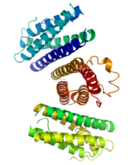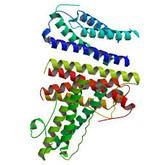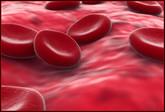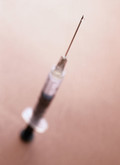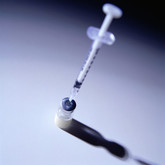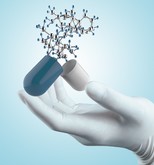Biosimilars/Research
The cost savings of non-medical switching in dermatology
Non-medical switching is when a patients' therapy is changed due to reasons not linked to their health and can involve non-interchangeable drugs, potentially affecting the treatment outcomes.
Switching from adalimumab originator and ABP501 to SB5 in arthritis patients
The introduction and availability of biosimilars entails a considerable increase in the patient access as well as a decrease in the patient cost. Thus, biosimilars could be the answer to the economic impact of the reference biological.
Updates for European Pharmacopoeia monographs for biotherapeutic products
The European Pharmacopoeia produces monographs for biotherapeutic products that are publicly available and considered the standard for defining the quality of these medicines. A recent study published in GaBI Journal [1] examines whether the challenges posed by complex products such as the introduction of biosimilars, have been met by new elements that have been added to the monographs.
Recommendations for improving biosimilar regulations in Latin America
The biosimilar regulatory scenario is very diverse and varies widely in the large group of Latin American countries. Authors Teran et al. presented some recommendations for making biosimilar regulations in Latin America more homogeneous and comprehensive [1].
Successful trials for Sandoz and Lannett biosimilars
On 19 September 2022, Sandoz announced positive results following its ROSALIA I/III clinical trial study for its proposed biosimilar denosumab. This follows the August announcement that Lannett Company successfully completed subject dosing in the clinical trial of its biosimilar insulin glargine.
Recommendations to address challenges to biosimilars in Latin America
After reviewing the regulatory landscape for biosimilars [1] and access to biosimilars for cancer treatments in Latin America [2], authors Teran et al. advised several recommendations to address challenges related to poor access to biosimilars in Latin America healthcare systems.
Totality of evidence for biosimilar pegfilgrastim Ziextenzo
Agarwala et al. have recently published a review on the totality of evidence (ToE) for the biosimilar pegfilgrastim Ziextenzo® (LA-EP2006) matching the European Union- (EU) and US-reference biological pegfilgrastim Neulasta® (marketed by Amgen) [1].
What does the designation of interchangeability for biosimilars in the US mean?
Biologicals have significantly improved patients’ quality of life, yet, access to these critical medicines are constrained due to cost and this is being exacerbated by the misperceptions around biosimilars. In particular, imprecise terminology has been applied to biosimilars, leading to the implication that biologicals designated as interchangeable by the US Food and Drug Administration (FDA) are better biosimilars. The US is the only jurisdiction in the world with this additional designation from the regulator as an option for biosimilar sponsors to consider [1].
Access to biosimilars for cancer treatments in Latin America
In many Latin America countries, patient access to biosimilars for cancer treatment remains restricted. In particular for patients with breast cancer and colorectal cancer, biosimilars can be a step further to increasing access to care [1].
Biosimilar regulations perspective in Latin America to improve cancer treatment access
To address the issue of regulatory process of biosimilars, including intended copies*, the Americas Health Foundation (AHF) conducted a literature review and convened a panel with eight experts in biological cancer therapies and health economics to address the most salient issues concerning the regulation of biosimilars in Latin America [1].
Pegfilgrastim biosimilar Udenyca demonstrated similar immunogenicity to Neulasta
The pegfilgrastim biosimilar Udenyca (pegfilgrastim-cbqv) is a pegylated, long-acting form of filgrastim (granulocyte colony-stimulating factor [G-CSF]). It is approved by the US Food and Drug Administration (FDA) and the European Medicines Agency (EMA) as a biosimilar of the originator pegfilgrastim (Neulasta) for febrile neutropenia in patients receiving myelosuppressive chemotherapy [1, 2].
Therapeutic drug monitoring with infliximab improves disease control
The latest study from the Norwegian Drug Monitoring (NORDRUM) trial [1] shows that proactive therapeutic drug monitoring (TDM) for patients receiving maintenance infliximab therapy improves disease control, compared to treatment without TDM.
WHO revised guidelines for biosimilars: scientific background
A study carried out by Kurki P et al. in 2022 reviewed the current clinical experience and scientific evidence to provide an expert perspective for updating the World Health Organization (WHO) guidelines on evaluation of similar biotherapeutic products (SBPs; also called biosimilars) to increase flexibility and clarity.
Positive phase III results for Samsung Bioepis’ Soliris biosimilar
Samsung Bioepis announced that its biosimilar to Soliris (eculizumab) has comparable efficacy and safety and is bioequivalent to the originator.
Adalimumab biosimilar MSB11022: PK and tolerability of autoinjector versus pre-filled syringe
The antitumour necrosis factor-alpha (anti-TNF‑a) monoclonal antibody adalimumab is used to treat a variety of chronic immune-mediated inflammatory diseases, including rheumatoid arthritis, psoriasis, psoriatic arthritis, juvenile arthritis and inflammatory bowel disease. The biosimilar MSB11022 (Idacio/Kromeya) has demonstrated physicochemical and functional similarity to reference adalimumab (Humira) in the preclinical setting. Further study in the clinical setting has established equivalent pharmacokinetics (PK) and efficacy, and comparable safety and immunogenicity for MSB11022 versus adalimumab. MSB11022 is available in three delivery formats: pre-filled syringe, vial and autoinjector. Offering a choice of devices can address patient needs and potentially improve adherence to therapy. Self-injection via pre-filled syringes may be challenging for some patients, due to issues such as needle phobia, pain-related concerns and arthritis hand pain making self-injection more difficult. The availability of alternative self-injection devices allows patients to select a device that suits their needs.
No trends in biosimilars uptake levels in the US, reveals study
There are no consistent trends in biosimilar uptake by order of market entry, care setting, or pricing, finds a new study published in the Journal of General Internal Medicine [1]. In addition, biosimilar uptake is generally lower than that reported for generic drugs in the US.
The impact of biosimilar insulins on public spending in Brazil
The availability of insulin for the treatment of diabetes mellitus, a chronic disease that increases with age, and its financial sustainability are of general concerns, especially for universal healthcare systems, such as the Brazilian Unified Health System (Sistema Único de Saúde, SUS) [1]. This is why similar biotherapeutic products (produtos bioterapêuticos similares, SBP) can be a cost reduction strategy in improving access to essential supplies for the population. These drugs demand less investment and acquisition cost [2].
Challenges with implementing benefit-sharing programmes for biologicals in Europe
Diverse policies have been implemented across Europe to support the rational prescribing of biologicals. Policies limiting the reimbursement of high-cost pharmaceuticals and applying prescription quotas for ‘best-value’ biologicals (BVB) have often been combined with educational campaigns about biosimilars and with benefit-sharing (gainsharing) initiatives [1, 2].
Successful increase of biosimilar adoption in a large integrated health delivery network
Biologicals have revolutionized patient care across several therapeutic areas but are associated with significantly higher costs to patients and healthcare systems. Biosimilars offer the opportunity to reduce drug spending without compromising patient care. Medication utilization management (UM), a formulary management methodology, can be used to facilitate the adoption of biosimilars. Author Sophia Humphreys describes an innovative and strategic biosimilar adoption programme that was developed and implemented at Providence St Joseph Health [1]. Providence is a large integrated health system including 53 hospitals, 1,085 clinics and an annual drug spend of >US$1.2 billion.
Patient perspectives on biosimilars in a high uptake country
Several surveys have shown that challenges for patient acceptance of biosimilars include patients’ concerns of quality, safety, and efficacy [1-3], however, there has been lacking more in-depth knowledge of the patient perspective and the underlying rationales for such perspective. Therefore and considering Denmark has one of the highest biosimilar uptakes [4], Varma et al. [5] investigated how Danish patients with psoriasis, arthritic diseases, or inflammatory bowel disease (IBD) perceived biosimilars.






